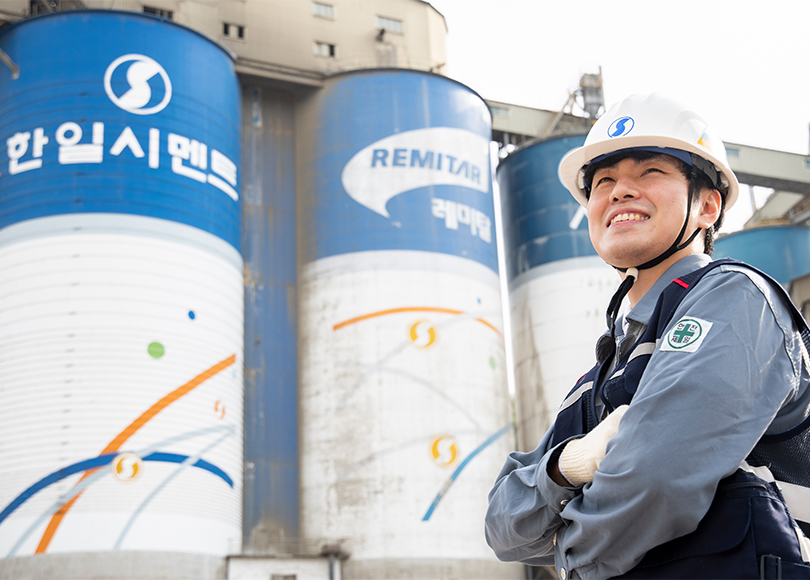Introducing the first-ever “bi-weekly 4-day workweek” in the cement industry
- Date :
- 2024.04.12
- Count :
- 752

Hanil Cement introduced the bi-weekly four-day workweek system for the first time in the cement industry starting this month. The bi-weekly four-day workweek system is implemented at Danyang Plant where cement is produced. In a two-week period, employees work one more hour every day for eight of the ten working days and take one of the Fridays off. Considering the nature of the cement factory, which needs to operate its production facilities 24 hours a day, however, the previous four-group three-shift system is maintained for production workers.
Since July last year, Hanil Cement has tested the 4.5-day workweek system wherein employees only work until noon every Friday as well as the bi-weekly four-day workweek system. The results of an employee survey revealed overwhelmingly higher satisfaction rates for the bi-weekly four-day workweek than the 4.5-day workweek, which is why the former is now implemented.
There were concerns about introducing the bi-weekly four-day workweek system considering the nature of the manufacturing industry wherein production facilities are operated 24 hours a day, but the implementation of the system was expedited nonetheless with focus on the welfare of the employees. Hanil Cement expects an increase in time for efficient self-development and rest for its employees as a result of the bi-weekly four-day workweek.
In particular, it aims to meet the needs of Generation MZ employees who consider proximity to Seoul and Metropolitan Area to be an important criterion for choosing a company, as well as to help its employees secure “work-life balance” by fully utilizing weekends and holidays. Residential and living infrastructure at the plant will continue to be improved in the future.
Since 2020, Hanil Cement has implemented a flexible work system wherein employees work 40 hours a week on average by starting to work between 8 and 10 AM and finishing between 5 and 7 PM depending on the duty and worksite.
“Even in the manufacturing industry, the driving force behind a sustainable company is its organizational culture. We will ceaselessly communicate with employees and create a great place to work where diversity is valued and one's abilities can be fully recognized,” CEO Jeon Gun-sik emphasized.
- NextHwangso Community Service Group of Danyang Plant performs agricultural machinery repair service on-site
- PreviousCardiopulmonary resuscitation (CPR) and automated external defibrillator (AED) training for employees
